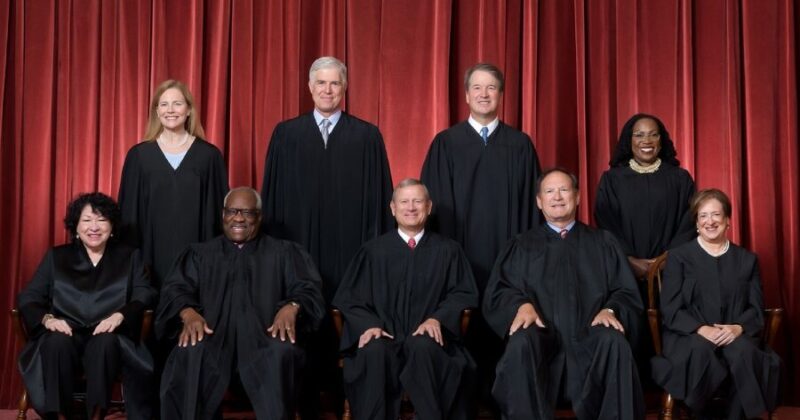On July 31, the Supreme Court announced it will decide on September 30 whether to hear a challenge to Michigan’s ban on government funding for religious schools.
The case comes as the school choice movement, which aims to offer parents alternatives to under-performing government-run schools through different education funding strategies, has recently enjoyed several key victories in the Supreme Court.
In 2022, the Supreme Court voted 6–3 to overturn a Maine law that barred families from a student aid program if they chose to send their children to religious schools. In Carson v. Makin, the Court ruled that the law violated the Free Exercise Clause of the First Amendment.
The clause guarantees Americans the right to practice their religion freely. It also protects actions taken in pursuit of religious beliefs, though there are some exceptions.
In Espinoza v. Montana Department of Revenue (2020), the Supreme Court ruled 5–4 that Montana’s decision to exclude religious schools from a state scholarship program funded by tax credits violated the Free Exercise Clause.
Article VIII, Section 2 of the Michigan Constitution includes a prohibition against state funding for private schools, applying to both religious and non-religious institutions.
Many states have similar provisions, known as Blaine Amendments, in their state constitutions.
In the Espinoza decision, the Supreme Court described the original Blaine Amendment, proposed in Congress, as having been “born of bigotry” and “arose at a time of pervasive hostility to the Catholic Church and to Catholics in general.”
“Many of its state counterparts have a similarly ‘shameful pedigree,’” the court said.
In this case, the petitioners contend that Michigan’s funding ban infringes on the Equal Protection Clause of the 14th Amendment to the U.S. Constitution.
On April 4, lead petitioner Jill Hile, along with the Parent Advocates for Choice in Education Foundation and other parents seeking public assistance for their children’s private religious school tuition in Michigan, submitted a petition to the Supreme Court.
Federal Judge Robert Jonker of the Western District of Michigan dismissed their lawsuit in September 2022, finding that their “Fourteenth Amendment claim rests on a narrow political process theory that has never been applied to a case like this, and that should not be expanded to invalidate a provision of Michigan’s Constitution that is facially neutral on parochial education.”
A facially neutral law is one that does not explicitly discriminate against any particular group in its text.
In November 2023, a divided panel of the U.S. Court of Appeals for the Sixth Circuit upheld the dismissal.
The petitioners say in their petition that they agree with the Supreme Court’s holding in Espinoza that a “State need not subsidize private education,” but Michigan is not allowed to “enshrine a restriction against religious families in its constitution that makes it more difficult for them—as compared to other similarly situated families—to advocate for public benefits.”
The petition notes that even if they prevail in court, they may still struggle to persuade the state Legislature to adopt the school funding program they are advocating for.
Share your thoughts by scrolling down to leave a comment.

